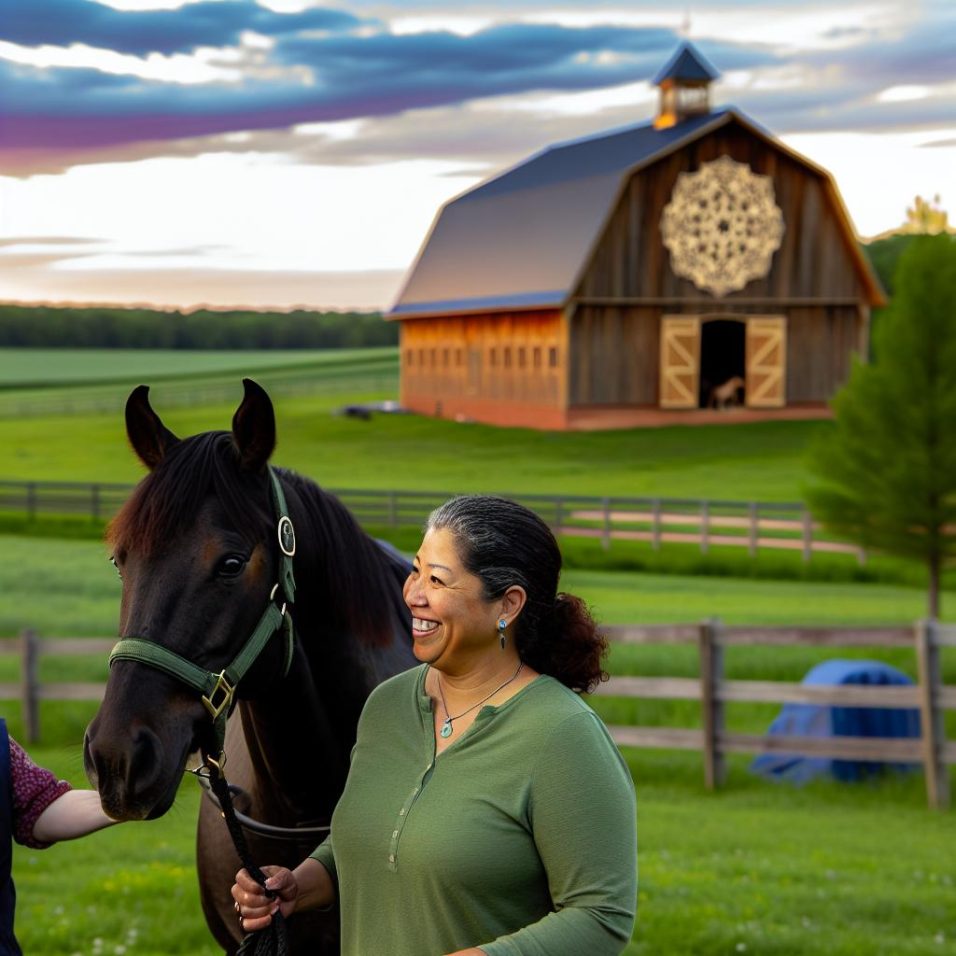Understanding Equine Therapy
Equine therapy, often referred to as horse-assisted therapy, is a unique form of experiential treatment that involves interactions between patients and horses. This therapeutic approach takes advantage of the distinct qualities of horses to foster mental and emotional healing. Within Virginia, equine therapy programs have gained significant traction, primarily due to their effectiveness in addressing a broad spectrum of psychological and physiological conditions.
History and Development
In recent years, equine therapy has been gaining increased recognition throughout the United States, with Virginia emerging as a notable proponent for its application. Historically, the use of horses in therapeutic settings traces back to the ancient Greeks, who documented the rehabilitative benefits of horseback riding. Over time, modern equine therapy has evolved to encompass a wide range of programs specifically tailored to address conditions such as Post-Traumatic Stress Disorder (PTSD), anxiety, depression, and autism.
How Equine Therapy Works
The mechanics of equine therapy generally involve a combination of groundwork and riding activities. During these therapeutic sessions, participants engage in various activities including grooming, feeding, leading, and riding horses, all under the supervision of a certified therapist. These interactions are deliberately designed to establish a bond between the individual and the horse, which can promote emotional growth and learning.
The foundational therapeutic impact of equine therapy is rooted in the horse’s innate ability to mirror the emotions and behaviors of the participants. Horses provide non-verbal feedback to human actions and emotions, offering participants a unique opportunity to gain insights into their feelings and behaviors. This process is integral to the therapeutic outcomes, as it encourages self-reflection and understanding. For more detailed information on how equine therapy can be integrated into a clinical process, resources like the PATH International page offer valuable insights.
Benefits of Equine Therapy
The advantages of equine therapy are numerous and multifaceted. From a physical standpoint, the act of riding can significantly enhance balance, coordination, and core strength. For individuals dealing with motor disabilities, equine therapy can lead to substantial improvements in physical capabilities. On the psychological front, these programs are known to help alleviate symptoms of mental health disorders. Horses provide a soothing presence, which can assist in diminishing anxiety and stress levels. For veterans or individuals afflicted with PTSD, equine therapy offers a controlled and safe environment to process past traumatic experiences.
Beyond these benefits, assuming responsibility for a horse’s care can lead to a profound sense of achievement and self-worth—crucial elements in many recovery journeys. Equine therapy programs often incorporate a goal-setting component, which aids participants in developing focus, determination, and long-term resilience.
Virginia’s Commitment to Equine Therapy
Virginia’s diverse and picturesque landscapes provide an ideal backdrop for equine therapy programs. The state hosts several esteemed centers and facilities that specialize in horse-assisted therapy. A significant number of these centers collaborate with healthcare providers to integrate equine therapy into more comprehensive treatment plans. The primary focus remains on delivering customized programs that address individual needs, thus ensuring that therapy is inclusive and accessible to diverse populations, including children, adults, and veterans.
Moreover, equine therapy in Virginia is bolstered by ongoing research and a committed community of practitioners who persistently champion its benefits. With an emphasis on offering therapy options that extend beyond conventional clinical settings, Virginia continues to serve as a trailblazer in this field.
Holistic Health and Wellbeing
In conclusion, equine therapy in Virginia stands as a considerable therapeutic advancement, leveraging the inherent empathy and sociability of horses to facilitate healing. The state’s substantial investment in these programs underscores the significance of alternative therapeutic approaches in promoting holistic health and wellbeing. This dedication not only enables individuals to address their specific challenges but also fosters a broader appreciation for the therapeutic potential of human-animal interactions. Through equine therapy, participants gain access to new avenues for personal growth, mental clarity, and emotional resilience, setting the stage for a more balanced and fulfilling life experience.


